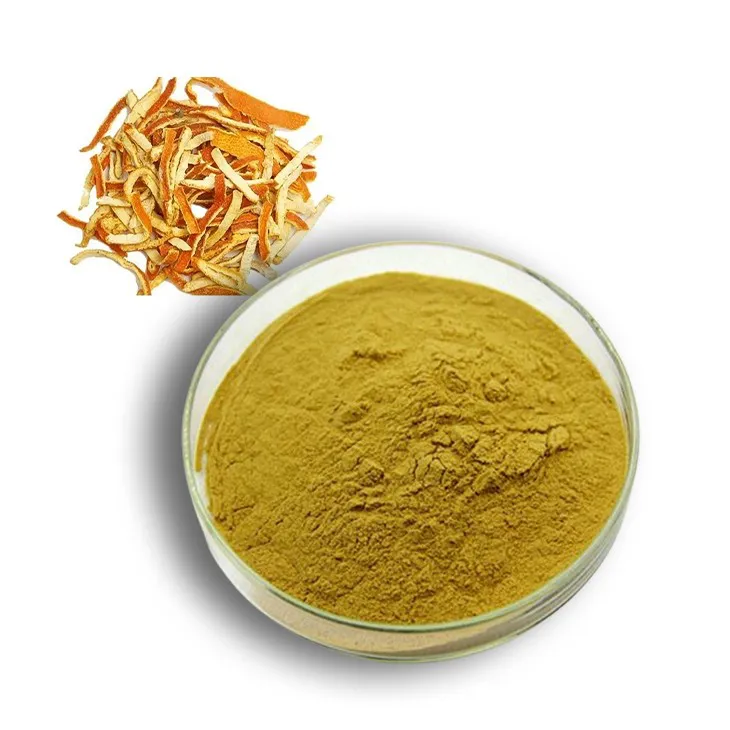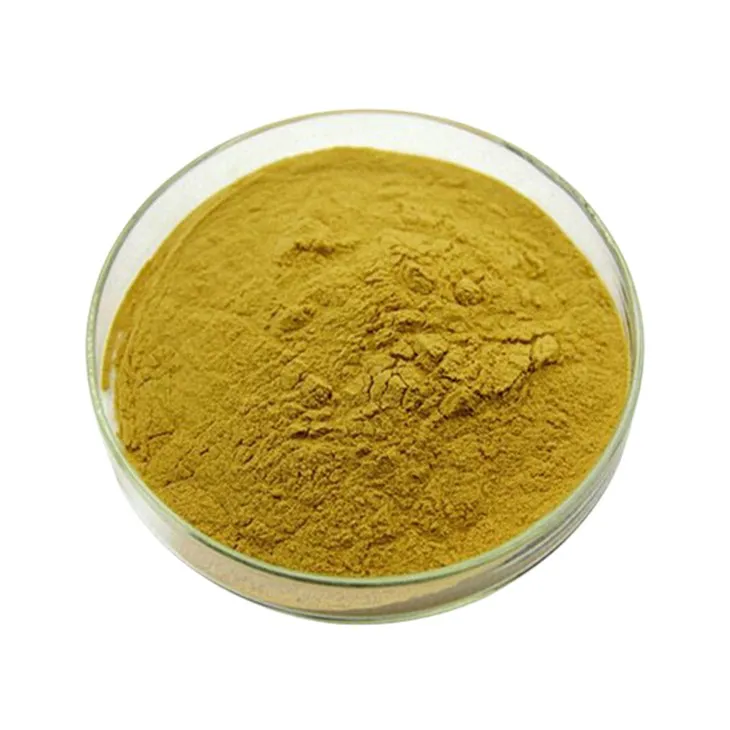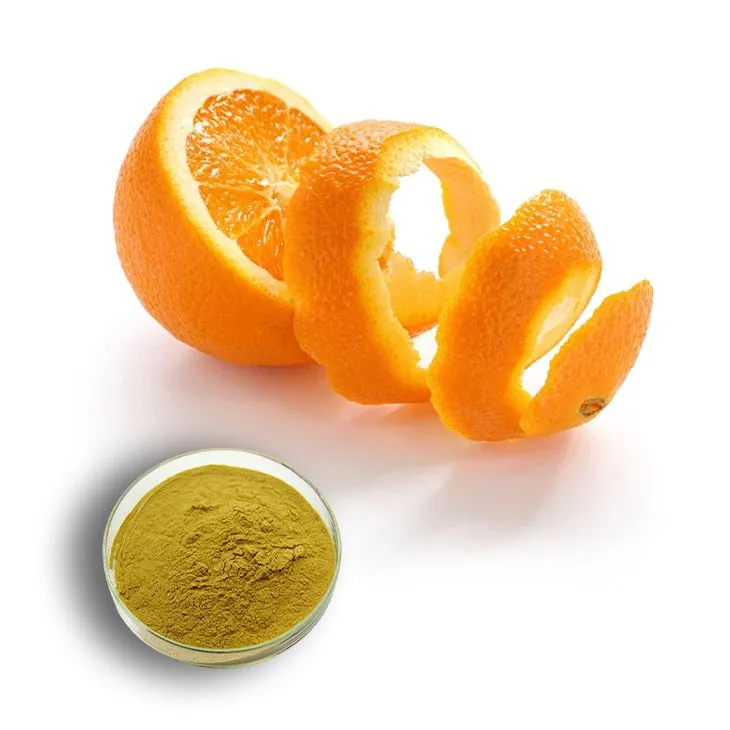- 0086-571-85302990
- sales@greenskybio.com
Six Amazing Effects of Hesperidin for Creating Perfect Skin!
2024-11-13

1. Introduction to Hesperidin
Hesperidin is a flavonoid that is predominantly found in citrus fruits such as oranges, lemons, and grapefruits. It has been the subject of extensive research in recent years due to its numerous health - promoting properties, especially when it comes to skin health. This natural compound is known for its antioxidant, anti - inflammatory, and other beneficial characteristics that can work wonders on the skin.

2. Soothing Irritated Skin
2.1 Inflammatory Response in the Skin
Irritated skin often results from an overactive inflammatory response. This can be caused by various factors such as environmental pollutants, allergens, or harsh skincare products. The skin's immune cells are triggered, leading to redness, itching, and sometimes swelling. Hesperidin has anti - inflammatory properties that can help to calm down this overactive response. It inhibits the production of certain inflammatory mediators in the skin, thereby reducing the symptoms associated with irritation.
2.2 How Hesperidin Works on Irritated Skin
Hesperidin works at the cellular level to soothe irritated skin. It interacts with the skin cells' signaling pathways, preventing the activation of genes that are responsible for promoting inflammation. By doing so, it helps to restore the skin's normal state more quickly. For example, in cases of mild sunburn or contact dermatitis, the application of products containing hesperidin can lead to a reduction in redness and discomfort within a relatively short period of time.

3. Fighting Free Radicals
3.1 The Danger of Free Radicals
Free radicals are highly reactive molecules that are constantly produced in our bodies as a result of normal metabolic processes, as well as exposure to environmental factors such as UV radiation and pollution. These free radicals can cause significant damage to the skin cells. They can attack the cell membranes, DNA, and proteins in the skin, leading to premature aging, wrinkles, and a dull complexion. Hesperidin is a powerful antioxidant that can neutralize these free radicals.
3.2 Antioxidant Mechanism of Hesperidin
Hesperidin donates electrons to free radicals, thereby stabilizing them and preventing them from causing further damage. This antioxidant activity is crucial for maintaining the health and integrity of the skin cells. Studies have shown that regular use of hesperidin - rich products can help to reduce the signs of oxidative stress on the skin, such as fine lines and age spots. It also helps to protect the skin from future damage by strengthening the skin's natural defense mechanisms against free radicals.

4. Boosting Blood Circulation in the Skin
4.1 Importance of Skin Blood Circulation
Good blood circulation in the skin is essential for delivering oxygen and nutrients to the skin cells. It also helps to remove waste products and toxins from the skin. Poor blood circulation can result in a dull complexion, slow wound healing, and a lack of radiance in the skin. Hesperidin can enhance blood circulation in the skin.
4.2 How Hesperidin Affects Skin Blood Circulation
Hesperidin has vasodilatory properties, which means it can widen the blood vessels in the skin. By doing so, it allows for better blood flow, ensuring that the skin cells receive an adequate supply of oxygen and nutrients. This improved circulation can also give the skin a healthy, rosy glow. Additionally, better blood circulation can help to reduce puffiness in the skin, as it helps to drain excess fluid more efficiently.

5. Minimizing Pores
5.1 Causes of Enlarged Pores
Enlarged pores can be a result of several factors, including excessive sebum production, loss of skin elasticity, and a build - up of dead skin cells. Pores can become clogged with sebum, dirt, and other impurities, making them appear larger. Hesperidin can play a role in minimizing pores.
5.2 The Role of Hesperidin in Pore Minimization
Hesperidin helps to regulate sebum production in the skin. By controlling the amount of sebum secreted, it can prevent pores from becoming clogged. Additionally, its antioxidant and anti - inflammatory properties can help to improve the overall health of the skin, which in turn can lead to a reduction in pore size. As the skin becomes healthier and more balanced, pores will appear smaller and less visible.
6. Evening Out Skin Tone
6.1 Uneven Skin Tone and Its Causes
Uneven skin tone can be caused by factors such as hyperpigmentation, sun damage, and post - inflammatory pigmentation. These issues can lead to dark spots, patches, and an overall lack of uniformity in the skin's color. Hesperidin can contribute to evening out skin tone.
6.2 How Hesperidin Helps with Skin Tone
Hesperidin inhibits the production of melanin, the pigment responsible for skin color. By reducing melanin production in areas of hyperpigmentation, it can help to lighten dark spots and even out the skin tone. Additionally, its antioxidant properties protect the skin from further sun - induced damage, which can also contribute to a more even complexion over time.
7. Maintaining Skin's Overall Health and Radiance
7.1 Overall Skin Health
Combining all of its beneficial effects, hesperidin is able to maintain the overall health of the skin. Its anti - inflammatory, antioxidant, sebum - regulating, and blood - circulation - enhancing properties work together to keep the skin in optimal condition. By preventing inflammation, fighting free radicals, and ensuring proper nutrient delivery, it helps to keep the skin cells healthy and functioning properly.
7.2 Skin Radiance
When the skin is healthy, it naturally has a radiant appearance. Hesperidin's ability to improve blood circulation, even out skin tone, and soothe irritation all contribute to a more radiant complexion. A healthy skin barrier, which is also supported by hesperidin, reflects light better, giving the skin a glowing and youthful look.
8. Conclusion
In conclusion, hesperidin is a remarkable compound with multiple benefits for the skin. Its six amazing effects - soothing irritated skin, fighting free radicals, boosting blood circulation, minimizing pores, evening out skin tone, and maintaining overall skin health and radiance - make it a valuable ingredient in skincare products. Whether it is obtained through diet or topical application, hesperidin can play an important role in helping individuals achieve perfect skin.
FAQ:
Question 1: How does hesperidin soothe irritated skin?
Hesperidin has anti - inflammatory properties. It can help reduce redness, swelling, and discomfort associated with irritated skin by modulating certain inflammatory pathways in the skin cells.
Question 2: What makes hesperidin effective in fighting free radicals?
Hesperidin is a powerful antioxidant. It has the ability to donate electrons to free radicals, thereby neutralizing their harmful effects. This helps protect the skin cells from oxidative damage caused by environmental factors such as UV radiation and pollution.
Question 3: How does hesperidin boost blood circulation in the skin?
Hesperidin may help relax the blood vessels in the skin. By doing so, it allows for better blood flow, which in turn brings more oxygen and nutrients to the skin cells, promoting a healthy complexion.
Question 4: Can hesperidin really minimize pores?
Yes, it can. Hesperidin helps regulate sebum production in the skin. By controlling the amount of oil produced, it can prevent pores from becoming clogged and enlarged, thus resulting in smaller - looking pores.
Question 5: How does hesperidin contribute to evening out skin tone?
Hesperidin can inhibit the overproduction of melanin in the skin. Melanin is responsible for skin pigmentation, and by regulating its production, hesperidin helps to reduce the appearance of dark spots and uneven skin tone.
Related literature
- The Role of Hesperidin in Skin Health: A Comprehensive Review"
- "Hesperidin: Its Impact on Skin Physiology and Aesthetics"
- "Antioxidant Properties of Hesperidin and Their Significance for Skin"
- ▶ Hesperidin
- ▶ citrus bioflavonoids
- ▶ plant extract
- ▶ lycopene
- ▶ Diosmin
- ▶ Grape seed extract
- ▶ Sea buckthorn Juice Powder
- ▶ Beetroot powder
- ▶ Hops Extract
- ▶ Artichoke Extract
- ▶ Reishi mushroom extract
- ▶ Astaxanthin
- ▶ Green Tea Extract
- ▶ Curcumin Extract
- ▶ Horse Chestnut Extract
- ▶ Other Problems
- ▶ Boswellia Serrata Extract
- ▶ Resveratrol Extract
- ▶ Marigold Extract
- ▶ Grape Leaf Extract
- ▶ blog3
- ▶ Aminolevulinic acid
- ▶ Cranberry Extract
-
Organic Tongkat Ali extract powder factory.
2024-11-13
-
How to make powder with ashwagandha extract.
2024-11-13
-
Rosehip extract manufacturers from China.
2024-11-13
-
The best cat's claw extract in nature.
2024-11-13
-
Chinese Dandelion Leaf Extract Suppliers.
2024-11-13
-
Stevia Extract
2024-11-13
-
Curcumin Extract
2024-11-13
-
White Willow Bark Extract
2024-11-13
-
Lotus leaf extract
2024-11-13
-
Peppermint Extract Powder
2024-11-13
-
Clove Powder
2024-11-13
-
Green Tea Extract
2024-11-13
-
Hawthorn Extract
2024-11-13
-
Beta Carotene
2024-11-13
-
melatonin extract
2024-11-13





















